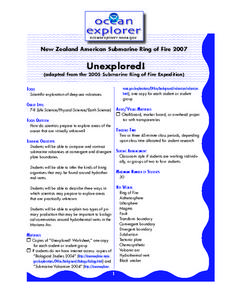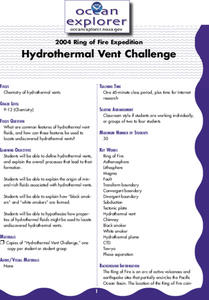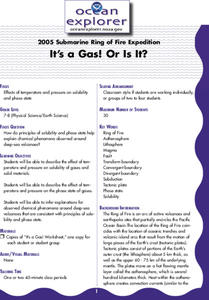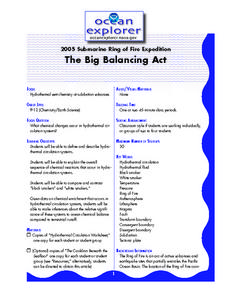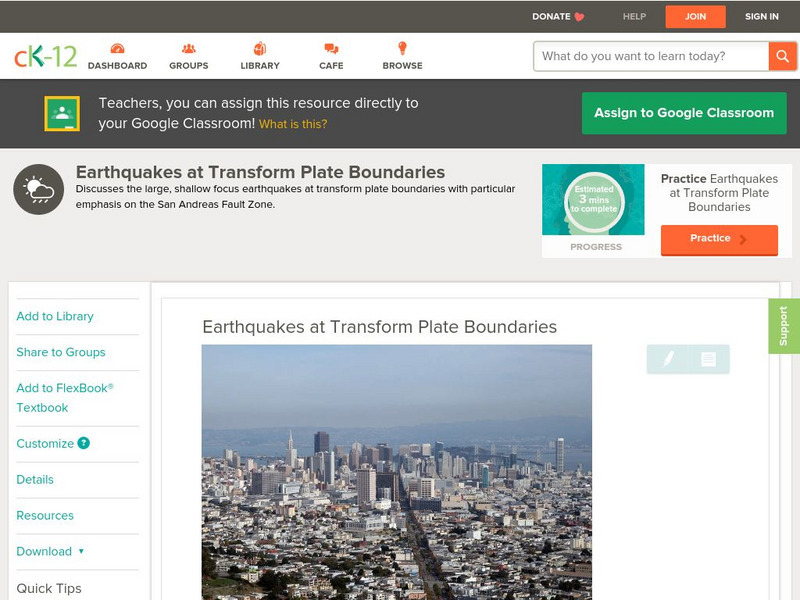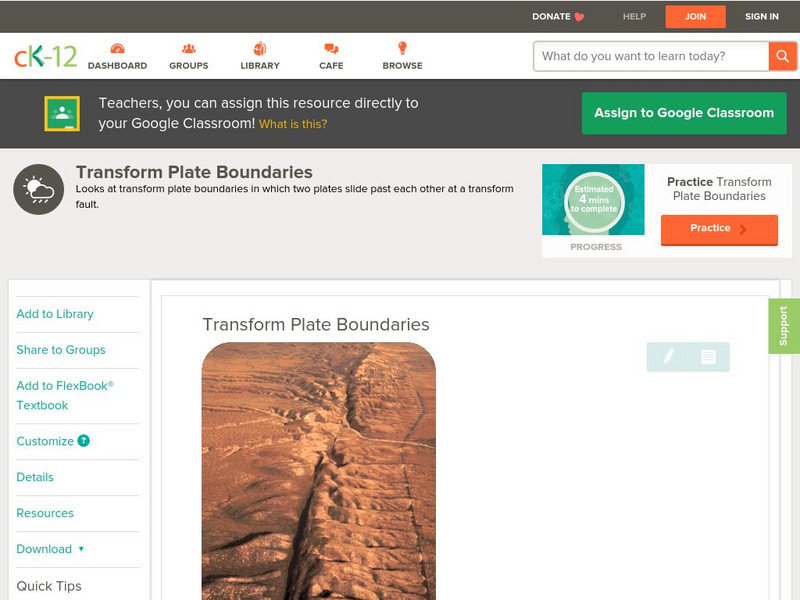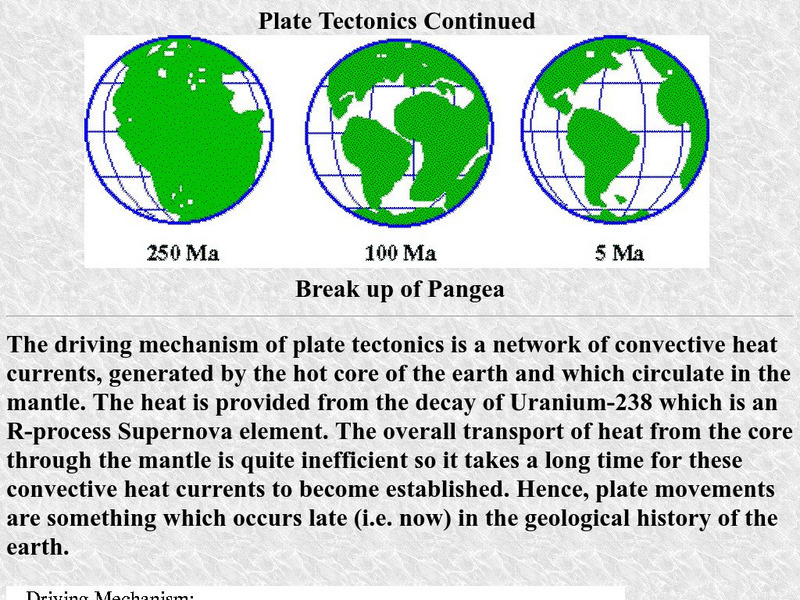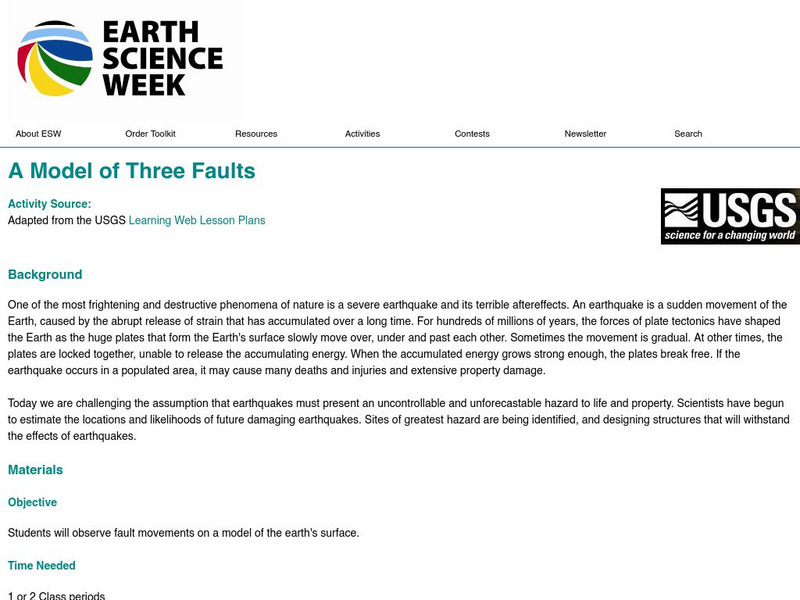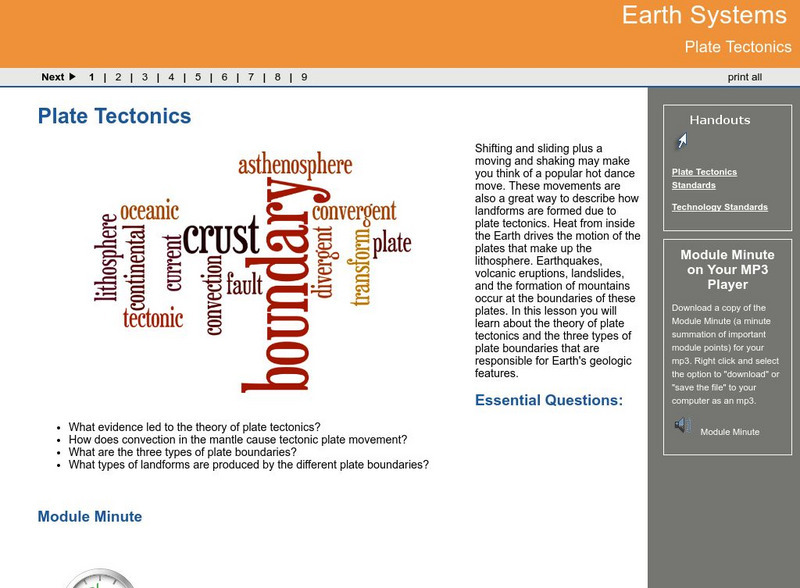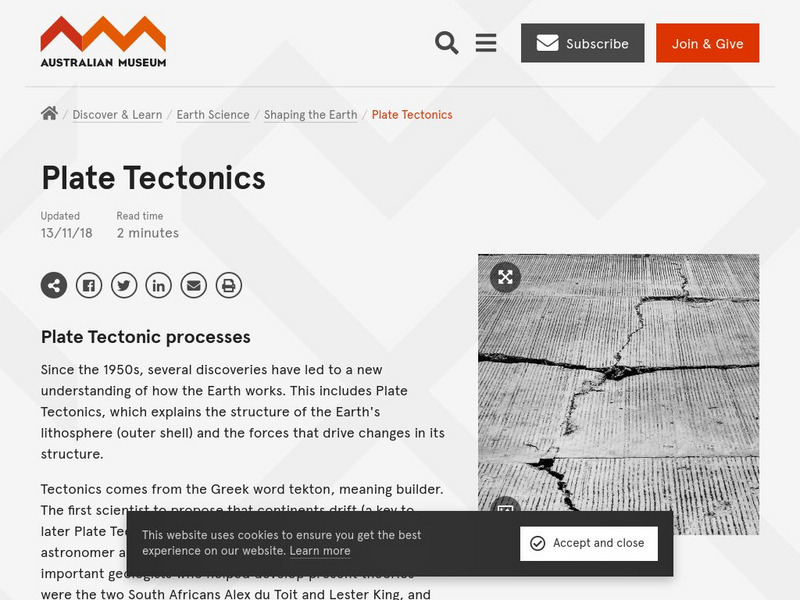Curated OER
What's The Difference?
Students identify geologic features that are associated with volcanoes. In this volcanic exploration instructional activity students compare and contrast convergent and divergent volcanoes and are able to explain why some erupt more...
Curated OER
Unexplored!
Students explore volcanoes. In this deep sea volcano activity students complete a worksheet and various activities.
Curated OER
Bank on it! Worksheet
In this sentence completion activity, students fill in the blanks to a paragraph about a tsunami with words in a word bank. Students fill in 20 words.
Curated OER
Hydrothermal Vent Challenge
Young scholars discover common features of hydrothermal vent fluids. They use this knowledge to locate possible undiscovered hydrothermal vents on the ocean floor.
Curated OER
It's Going to Blow Up!
Students discover the major characteristics of volcanoes on the Pacific Ring of Fire. They describe the processes that produce the "Submarine Ring of Fire." students explain the factors that contribute to explosive volcanic eruptions.
Curated OER
Where There's Smoke......
Young scholars use fundamental relationships between melting points, boiling points, solubility, temperature and pressure to develop explanations. In this chemistry instructional activity students complete an activity.
Curated OER
My Friend, The Volcano
Students describe the positive impacts of volcanic activity on marine ecosystems. In this volcano lesson students explore the process that causes volcanic activity along the Mariana and Kermadec Island Arcs.
Curated OER
It's a Gas! Or is it?
Young scholars describe the effects of temperature and pressure on solubility of gases and other materials. In this investigative lesson students read an article and answer questions about it.
Curated OER
2005 Submarine Ring of Fire Expedition: What's for Dinner?
Young scholars compare and contrast photosynthesis and chemosynthesis as sources of primary production for biological communities, and describe sources of primary production observed in biological communities associated with volcanoes of...
Curated OER
It's a Gas! Or is it?
Students discover the principles of solubility and phase state and their influence on chemical phenomena observed around deep-sea volcanoes. They describe the effect of temperature and pressure on solubility of gasses and solid materials.
Curated OER
The Big Balancing Act
Students describe chemical changes occurring in hydrothermal circulation systems. They make inferences about the significance of these systems to ocean chemical balance compared to terrestrial runoff.
CK-12 Foundation
Ck 12: Earth Science: Earthquakes at Transform Plate Boundaries
[Free Registration/Login may be required to access all resource tools.] Covers earthquakes occurring at transform plate boundaries, fault zones, and transform faults.
CK-12 Foundation
Ck 12: Earth Science: Earthquakes at Transform Plate Boundaries
[Free Registration/Login may be required to access all resource tools.] Covers earthquakes occurring at transform plate boundaries, fault zones, and transform faults.
CK-12 Foundation
Ck 12: Earth Science: Divergent Plate Boundaries Study Guide
This comprehensive study guide covers the main terms and concepts needed for an earth science unit on divergent plate boundaries. Review questions are included at the bottom of the study guide.
US Geological Survey
Usgs: Understanding Plate Motions
The U.S. Geological Survey provides descriptions and illustrations for the plate boundaries of the Earth's surface.
CK-12 Foundation
Ck 12: Earth Science: Transform Plate Boundaries
[Free Registration/Login may be required to access all resource tools.] Covers transform plate boundaries on land and in the ocean.
CK-12 Foundation
Ck 12: Earth Science: Transform Plate Boundaries
[Free Registration/Login may be required to access all resource tools.] Covers transform plate boundaries on land and in the ocean.
University of Oregon
The Electronic Universe Project: Plate Boundaries/plate Tectonics
Visit this site to learn more about the different types of plate boundaries. Includes color pictures and easy-to-understand examples of how and why plates move the way they do.
American Geosciences Institute
American Geosciences Institute: Earth Science Week: A Model of Three Faults
In this lesson, students learn about the different kinds of faults and plate boundaries and where they can be found. They research and report on the faults that are present in their state. They are also asked to develop models of three...
Georgia Department of Education
Ga Virtual Learning: Plate Tectonics
In this interactive lesson you will learn about the theory of plate tectonics and the three types of plate boundaries that are responsible for Earth's geologic features.
Australian Museum
Australian Museum: Plate Tectonic Processes
A comprehensive site on plate tectonics and the Earth. Read how the oceanic and continental crusts, as well as the heat and the pressure within the Earth affect plate tectonics.
Science Struck
Science Struck: Transform Boundary: Definition and Useful Examples
Explains what a transform boundary is and gives examples of well-known faults of this type.
CK-12 Foundation
Ck 12: Earth Science: Folds and Faults Study Guide
Review folds and faults using this review guide.
Other
Digital Library for Earth System Education: Teaching Box: Plate Tectonics
A suite of lessons focusing on finding the fossil evidence for lithospheric plate tectonics. Inquiry-based exploration of plate tectonics evidence includes fossil distribution, earthquakes, and volcanoes.



